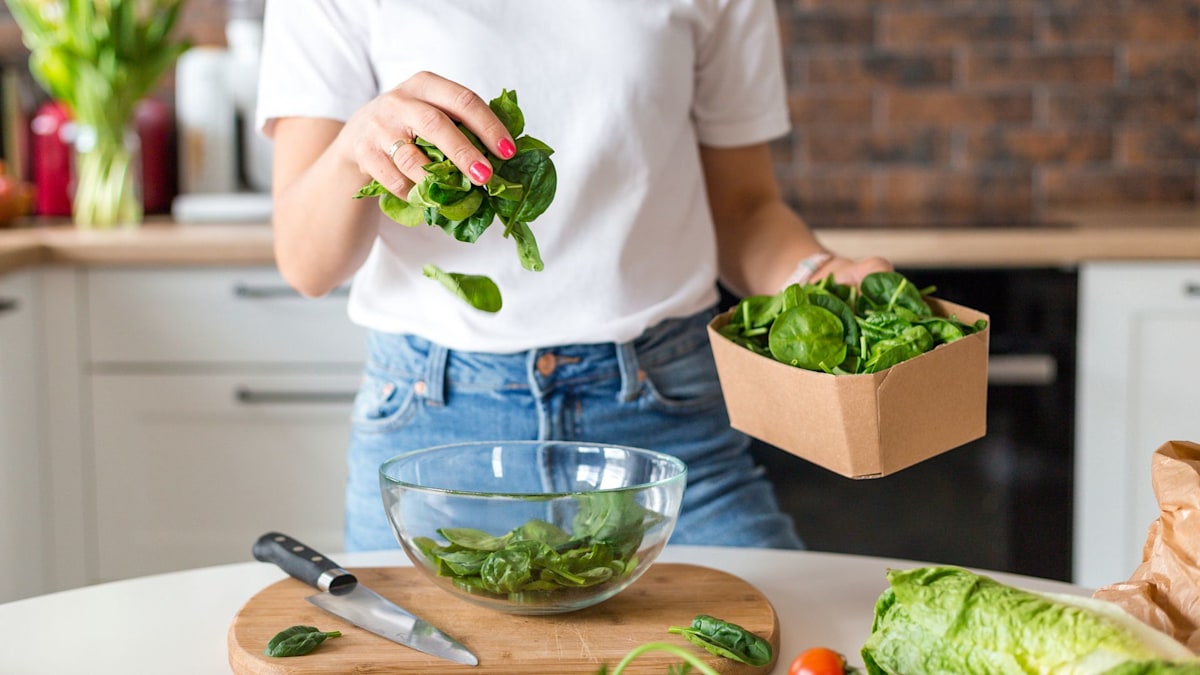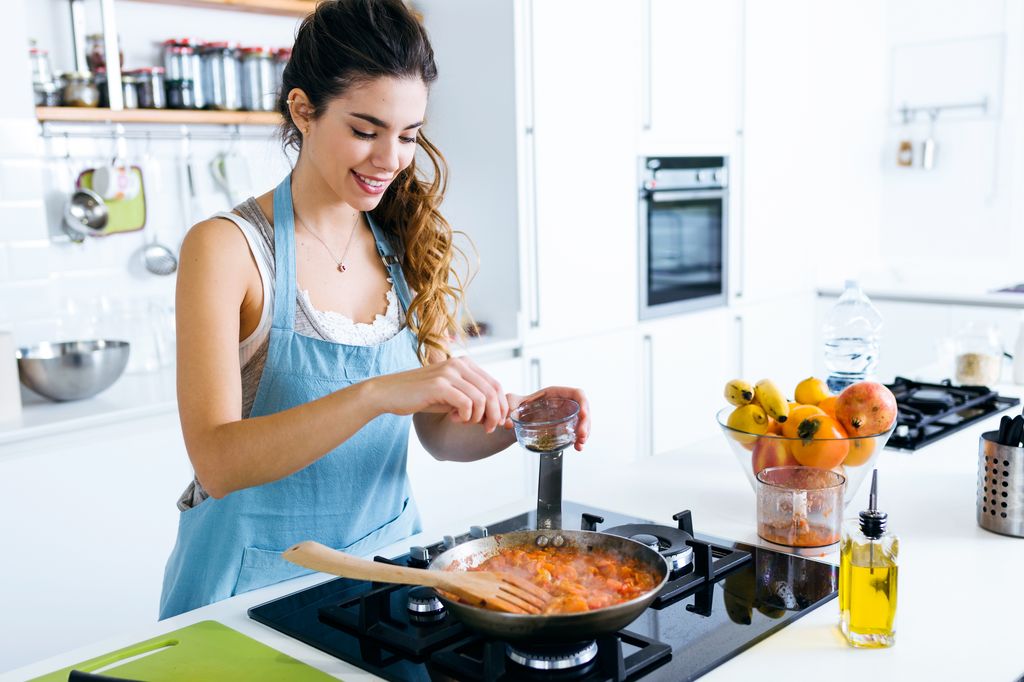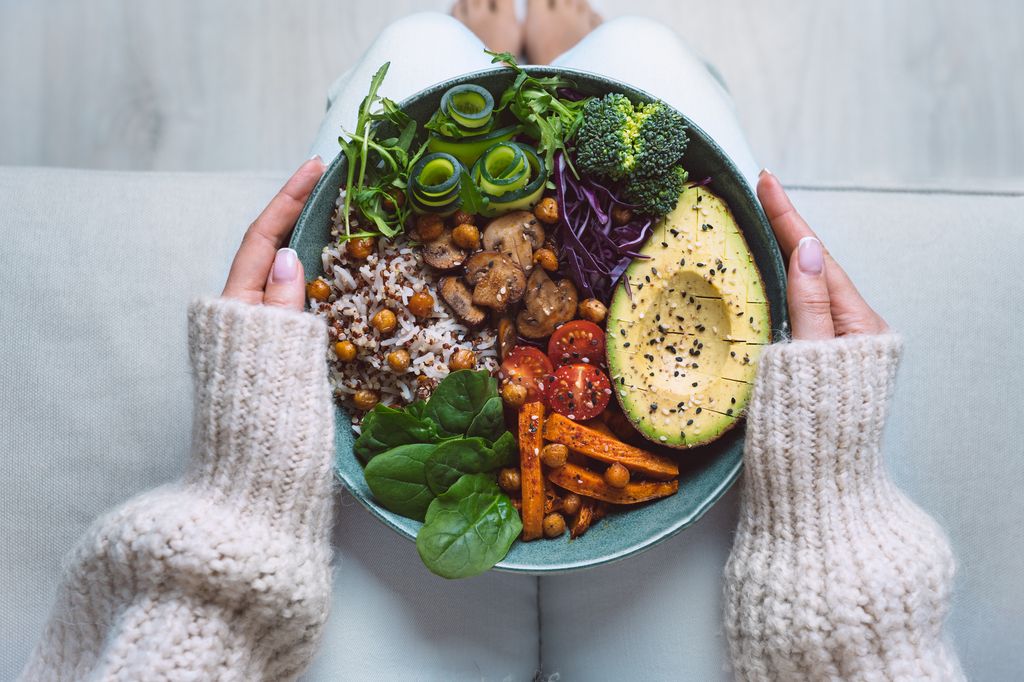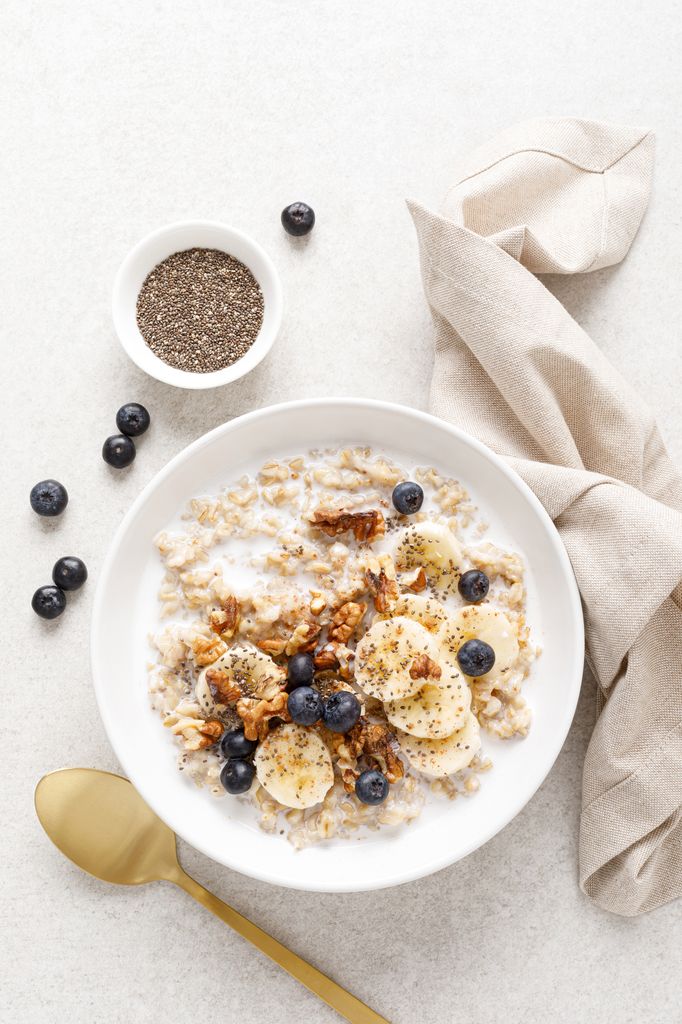There’s a reason why some of the oldest people in the world are the ones following the Mediterranean diet. Packed with antioxidants, healthy fats and polyphenols, research consistently shows that this diet is good for heart health, preventing major diseases like diabetes and cancer and managing weight. Filled with fresh fruit and vegetables, whole grains, fish, nuts, seeds and olive oil, it’s a delicious and simple diet to follow.
Getting started
First things first, how do you get started? The Mediterranean diet is fairly simple to follow, placing an emphasis on fresh fruits and vegetables, whole grains, fish, nuts and seeds. Fresh fruits and vegetables should be the main focus, with up to seven servings per day. You should aim to get at least 25g of fibre a day through wholegrains, nuts and seeds and 2-3 servings of fatty fish such as salmon, sardines or mackerel per week. To get started, plan your meals in advance and build a shopping list ensuring you are including the main ingredients of the diet.
Mediterranean diet basics
So what are the Mediterranean diet basics? When building your plate, follow a simple rule of fractions. I often recommend to my clients that they fill half their plate with fresh vegetables such as leafy greens, bell peppers, carrots or tomatoes, a quarter of their plate with wholegrains like quinoa, bulgur or brown rice and the other quarter with lean protein such as fish, chicken or pork. I also recommend a serving of healthy fats such as nuts, seeds or olive oil.
Key foods to avoid on the Mediterranean Diet
There are key foods that you should avoid while following the Mediterranean diet. Those include red meat, processed meats such as bacon and pepperoni, processed foods such as crisps, biscuits, frozen chips, nuggets and pizzas, sugary drinks, refined grains such as white flour, white rice, pasta and crackers and dairy products such as butter and cream.
Tips for transitioning to a Mediterranean lifestyle
Transitioning to a Mediterranean lifestyle starts with simple planning. Make sure you have a list of meals planned for the week. Search for some easy Mediterranean recipes you know you like and any quick weeknight meals you can easily throw together at short notice. Have healthy snacks and breakfast ideas at hand so that the diet is seamless and easy to follow. Every week ensure you have the right list of ingredients and pantry staples at the ready so cooking the right meals is as simple as possible.
Meal planning
First of all make a list of meals you want to make for breakfast, lunch, dinner and snacks between Monday-Sunday. Then plan out which meals you will have day-to-day (factor in some leftovers) and which ones you can batch cook in advance. Set aside a day to make the meals you can batch cook such as Sunday where you know you have some spare time to set aside.
Easy Mediterranean recipes perfect for beginners
One of the easiest recipes is a simple Mediterranean traybake. Simply roast a bunch of chopped veggies such as pumpkin, zucchini, bell peppers along with a few fillets of salmon or chicken breast, and a tin of drained chickpeas in the oven for around 20 minutes. I simply drizzle with some olive oil, crushed garlic, lemon and mixed herbs. Once cooked and cooled simply store in an airtight container and take out the fridge and reheat for a quick lunch or dinner. Another easy recipe is my veggie slice which is so simple, tasty and quick to make or try my chickpea tagine for a winter warming, plant-based dinner.
Quick weeknight meals to try
If you’re running short on time, opt for a salad with grilled fish or chicken. Make ahead a batch of cooked brown rice or quinoa which you can toss in the salad along with some drained tinned chickpeas or lentils. Fancy something a little special? Try my healthy chicken schnitzel recipe which is a lighter twist on the pub favorite.
Healthy snacks and breakfast ideas
Always make sure you have a healthy breakfast and snacks at hand. For breakfast try my chunky monkey overnight oats or zucchini egg nests which you can prep in advance. On Sunday I like to make-ahead a bunch of healthy snacks for the family like my raspberry loaf or carrot cake slice or asparagus egg muffins.
Shopping and pantry staples for Mediterranean meals
When you build your shopping list make sure you have plenty of fresh vegetables and fruit. Think leafy greens like spinach, arugula, kale and cruciferous veggies like broccoli, cauliflower and cabbage as well as carrots, tomatoes, bell peppers, zucchini, avocado and eggplant. Add fruit such as oranges, berries, apples, melons, peaches, pears, strawberries and blueberries. Then add wholegrains and legumes such as bulgur, quinoa and brown rice or chickpeas, lentils and beans, nuts and seeds like pumpkin seeds, sunflower seeds, walnuts, almonds and pistachios. For lean meat go for fatty fish, lean chicken, turkey or pork. For dairy opt for hard goat’s cheese, goat’s feta and Greek yoghurt. For oil, always opt for extra virgin olive oil and use pantry staples like tahini, olives and sesame seeds.
What to order when eating out
Opt for a veggie rich plate like a salad with lean protein or a buddha bowl with rice, veggies and salmon. If you feel like a sandwich, go for wholegrain bread with plenty of salad and lean protein. Avoid processed meats like ham and pepperoni. For pub grub avoid greasy fried foods such as fish and chips, burgers or nuggets, instead go for grilled fish or chicken with a large portion of veggies or salad. A veggie soup is always a good option if you want something lighter. Skip heavy creamy pastas and if you must order a pizza go for the veggie option rather than the meat feast.
Staying on track: Tips for busy beginners
Sometimes life gets in the way and it can be hard to stay on track. The key is to set yourself up for success and ensure you plan ahead. Set time aside to plan your meals for the week and batch cook what you can in advance. For example on Sunday make two traybakes, one with salmon and one with chicken for packed lunch and dinners you can reheat quickly when busy. Then batch cook some healthy snacks and two types of breakfasts that you can take to work or pull from the fridge at your convenience.
Faye James is a Sydney-based accredited nutritionist and author of The 10:10 Diet, The Menopause Diet, The Long Life Plan and her latest books The Perimenopause Plan and Everyday Easy Vegan
Read the full article here









